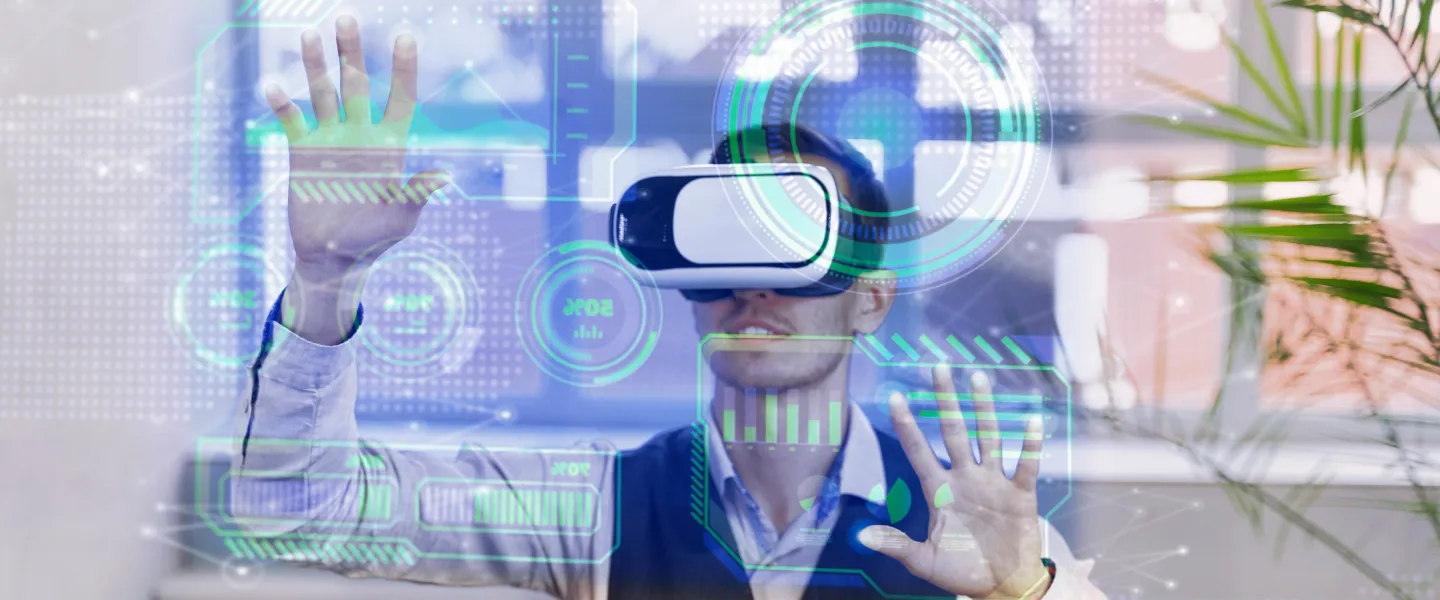With the ability of machines to learn from experience, adjust to inputs, and perform tasks like humans, artificial intelligence is impacting the business world like nothing else.
AI is the most exciting technology trend of the 21st century and the pep talk of many business giants, with a global value of over $136 billion. AI is shaping the human lifestyle, from self-driving cars to Alexa, ChatGPT, and more. The machines are trained to accomplish tasks by processing large amounts of data and recognizing patterns in the same data.
If you want to discover more about AI's future and how AI is changing the world, we have a read for you! This blog talks about the AI revolution, its impact on the enterprise sector, and the future of AI.
AI Revolution
Artificial intelligence was first introduced in 1956, but AI has become more popular these days as data is readily available on which data mining and deep learning are done due to computing power and storage improvements.
Here are the AI Revolution highlights:
- In the 1950s, AI research explored topics like problem-solving and symbolic methods
- In the 1960s, the US Defense trained computers to mimic basic human reasoning
- In the 1970s, the Defense Advanced Research Projects Agency (DARPA) completed street mapping projects
- In 2003, DARPA produced intelligent personal assistants
- In 2011, apple launched Siri
- Long before, Alexa and Cortana were household names
- This early work paved the way for automation and formal reasoning today in ChatGPT
In the 1950s to 1970s, Neural networks stirred excitement; in the 1980s to 2010s, Machine learning showcased its beauty, and today, Deep learning breakthroughs AI drive!
Impact of AI On The Enterprise Sector
You would have been already dreaming of what products you want to sell but confused about how to set up your ecommerce site for success. Introduce AI to it.
Do it in 5 simple steps:
- Validating your business idea with the products that you are likely to sell
- Procuring products from trustworthy suppliers
- Make an ecommerce site well integrated with AI
- Marketing and promoting products with the help of AI statistics
- Make sales
It is always exciting to jump into trending technology and stay up-to-date with the latest. However, we recommend you have a roadmap before jumping into it. Hiring an established software development company is the easiest way to achieve this!
Benefits of Implementing AI in Your Ecommerce Sector:
- Targeted marketing: You can use AI to suggest products to your customers based on their preferences, like what they view most. It increases the likelihood of a purchase.
- Customer Engagement: AI technology provides a seamless shopping experience by replying to their queries through chatbots. It helps to satisfy your customers so they will stay loyal to you.
- Advertising and marketing: It makes every shopper feel like they have a personal assistant as you can send AI-powered customized messages. They get to know about products that resonate well with choices.
- Demand Forecasting: AI also makes suggestions for your business based on customer interactions to streamline your business processes.
- Pricing optimization: AI, based on its smart logistics, helps you decide optimal prices for your products and enhances sales for your venture.
- Customer retention: AI enables you to segregate customers so that you can plan your proposals accordingly and offer better customer service.
Future of AI
AI is not here to replace the human workforce but to enhance it. AI makes humans better at what they do. Using AI algorithms, humans can see data relationships and patterns that are usually used to escape us. The future holds a beautiful human-AI partnership with many opportunities.
The future of AI brings analytics to industries where it is underutilized using data mining and deep learning, breaks down language and translation barriers worldwide using natural language processing, gives better vision with its computer vision abilities, assists humans in physical tasks using robotics, and more.
Different Industries Impacted By Artificial Intelligence
The innovation in AI tools and algorithms is impacting different industries. Some are beginning their AI journey, while others are veteran travelers. Here is a quick brief:
- Healthcare: AI machines offer personalized medicine and X-ray readings, acting like personal healthcare assistants. AI-cored applications are also trained as life coaches, reminding you to take pills, exercise, or eat healthier.
- Manufacturing: AI algorithms analyze business data to predict expected load and demand. It is done via a specific type of deep learning network that uses sequence data. Also, AI robots make tedious tasks smooth and easy.
- Banking: AI enhances speed and precision by identifying financial transactions likely to be beneficial or fraudulent, adopting accurate credit scoring, and automating manually intense data management tasks.
- Retail: AI provides virtual shopping capabilities—personalized recommendations, stock management, and customer engagement, among other benefits in the retail sector.
Conclusion
AI is changing the world. It is helping customers and capitalists by offering technical solutions to problems far beyond human scope- automation, data learning, legal assistance, risk notification, and even research. It has made daily life easier for everyone. The IT sector and different business sectors worldwide integrate AI for convenience, efficiency, and success.
